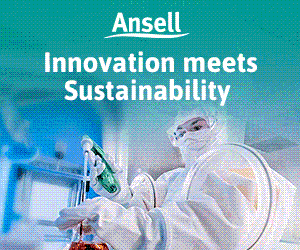Exyte, the German builder of hi-tech facilities, has organised an event in Basel, Switzerland, to bring together industry experts and discuss the challenges of the industry, gather opinions and share knowledge on why the developments in building the factory of the future can help manufacturers to stay ahead of the game.
“A number of experts shared insights on market direction and growth including future production methods as well as best practices on smart facilities of the GMP regulated industry,” Francois Abiven, President Global Business Unit LSC, explained.
The speaker line-up included:
- Dr Christoph Herwig, professor at the TU Vienna
- Dr Frank Wartenberg ofIQVIA
- Dr Oliver Bartelsen of Miltenyi Biotec
- Woody Hydrick, international consultant
Market trends
The Exyte event also demonstrated that there is not only a demand for new facilities but also for frequent refurbishment that increasingly drives investments. However, the constant need for optimisation at a reasonable cost also arises for debate.
Exyte said there are various opportunities to meet the challenges in terms of quality, costs and time. Below are the take-home messages from the event comprised by the German builder.
Technology for smart facilities
For Exyte, lean, clean, green, and fast are the future needs of a smart fab. The smart fab concept utilises developments in IoT technology, interconnected IT systems, and automated analytics of data available from sensors, images or other devices in a semiconductor wafer fab.
Digital Twin is a core element of the “Smart Fab” concept. It consists of a virtual digital model of the buildings and all facility systems. Integrated data science along the value chains puts data in a context, ensures data integrity and allows a scalable approach due to standardised real-time architecture.
The event also highlighted how Artificial Intelligence (AI) helps in understanding data: to perfectly match systems and subsystems, keep the resources the total energy and resources required to run the plant over its entire lifecycle, so that operations are as optimised and cost-efficient as possible.
Highly flexible, modular plant design
Manufacturers deal with increased pressure to reduce costs, and now also from the impact of new therapeutic technologies expanding into personalised medicine. How to make large-scale production run as smoothly and cheaply as possible with the market’s existing technology is top of mind in the pharmaceutical industry.
Experts attending the Exyte event said they believe that flexible and fast GMP plants will need to go through a shift from prefabricated facility modules to standard construction cells.
Long engineering and construction times will be shortened with advanced solutions, predictable and consistent across all geographies.
To ensure clients’ cost certainty, the starting point must always be the process equipment layout, not the module “box"
For Exyte, process steps will be scalable: designed once and regularly built, enabling hi-tech projects even in low-skilled labour areas, giving cost certainty through standard building blocks.
Dreamy future or reality? For Exyte, to ensure clients’ cost certainty, the starting point must always be the process equipment layout, not the module “box”.
Stefan Kappeler, Technology Manager Life Sciences at Exyte, explained: “One of the biggest challenges for manufacturers is that they don’t know yet what the rate of production will be, or what technology they’ll need to produce their medicine.”
Designed with the processes, and not with a box-in-box design, the retro-fit of existing real estate assets and vendor-independent equipment is possible.

“Companies want to make sure they have the best process laid out when they then need to stay competitive,” Kappeler added and said the solution is cellular design. “Cellular design bricks (ExyCells), combined with standard cleanroom systems, are basic for phased construction and scalable production,” he explained.
For Exyte, facility design will adapt to the customer’s unique features and technologies and easily fit into the spaces within the cells.
“Exyte enables clients with a new standard approach for fabs: pre-engineered, pre-documented and pre-qualified. Our open ballroom concept with cells allows standard arrangements that can be assembled in different ways for virtually any layout,” Luca Mussati, Vice President of Pharma and Biotech at Exyte, concluded.
Improved project management
Exyte experts also noted that working in this new environment, designers, engineers and project managers can skip the “conceptioneering” phase upfront to projects (30-50% of a project) and shorten the time to market.
The design concept goes hand-in-hand with a holistic control strategy over the life cycle, continuous integrated processing and quality control in projects. Functional modularity also contributes to more automated and standardised, efficient plants.
Numerous benefits in fast-track, hi-tech, lean projects will convince prospects and clients: immediate layout and cost indication, as well as single-source responsibility, result in CapEx and OpEx reduction.
For Exyte, it is not only about speeding up the project delivery and reducing unproductive deployed capital but also about higher velocity in project delivery.
Critical to clients’ business models is that their facilities will be more flexible and more adaptable as products come through clinical trials and global market forecasts become refined. Critical success criteria for a commercially viable product will be guaranteed automatically in this process.




